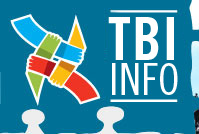You are here : Home > Library > Resilience > Intervention > 2003 > King, G., T. Cathers, et al. (2003) Turning points and protective processes (...)
King, G., T. Cathers, et al. (2003) Turning points and protective processes in the lives of people with chronic disabilities, Qualitative Health Research 13(2): 184-206.
In this qualitative study, the authors examined the nature of resilience in people with chronic disabilities. Fifteen people with disabilities identified the factors that helped or hindered them at major turning points, and the triggers and resolutions to these turning points. Turning points were emotionally compelling experiences and realizations that involved meaning acquired through the routes of belonging, doing, or understanding the self or the world. The major protective factors were social support, traits such as perseverance and determination, and spiritual beliefs. Three new protective processes were identified: replacing a loss with a gain (transcending), recognizing new things about oneself (self-understanding), and making decisions about relinquishing something in life (accommodating). These protective factors, processes, and ways in which people with disabilities draw sense and meaning in life have important implications for service delivery.
Terms of Use | 2007-2008 All rights reserved © INFO-TBI. Graphic design : François Ménard | Design : WebConforme

